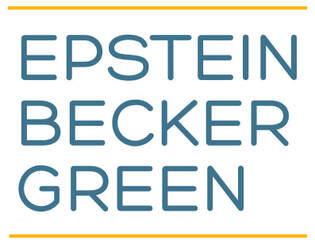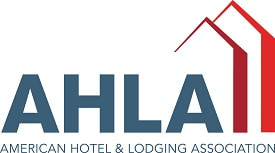Ask the Experts: The Pregnant Workers Fairness Act
By: Nancy G. Popper| Epstein, Becker, Green

Q: The Equal Employment Opportunity Commission changed the "Know Your Rights" poster. What do I need to update?
A: It’s once again time to update your workplace posters. Coinciding with the effective date of the Pregnant Workers Fairness Act (“PWFA”), the U.S. Equal Employment Opportunity Commission (“EEOC”) released a revised “Know Your Rights” poster on June 27, 2023. The new poster replaces the one that was issued in late 2022, adding information about the PWFA.
Under the PWFA, covered employers must provide reasonable accommodations for a worker’s known limitations related to pregnancy, childbirth, or other related medical conditions, unless the accommodation will cause the employer an undue hardship. EEOC guidance points to a House Committee on Education and Labor Report that provides examples of possible reasonable accommodations, such as giving an employee closer parking or excusing the employee from strenuous activities.
Importantly, the PWFA does not replace Title VII, the ADA, or any other federal, state, or local laws that are more protective of employees and job applicants affected by pregnancy, childbirth, or related medical conditions.
What’s New?
The updated two-page poster expands the definition of sex discrimination, which already included discrimination based on pregnancy, to include childbirth and related medical conditions. It also adds that an employer cannot take adverse action against an employee exercising rights regarding pregnancy accommodation.
A: It’s once again time to update your workplace posters. Coinciding with the effective date of the Pregnant Workers Fairness Act (“PWFA”), the U.S. Equal Employment Opportunity Commission (“EEOC”) released a revised “Know Your Rights” poster on June 27, 2023. The new poster replaces the one that was issued in late 2022, adding information about the PWFA.
Under the PWFA, covered employers must provide reasonable accommodations for a worker’s known limitations related to pregnancy, childbirth, or other related medical conditions, unless the accommodation will cause the employer an undue hardship. EEOC guidance points to a House Committee on Education and Labor Report that provides examples of possible reasonable accommodations, such as giving an employee closer parking or excusing the employee from strenuous activities.
Importantly, the PWFA does not replace Title VII, the ADA, or any other federal, state, or local laws that are more protective of employees and job applicants affected by pregnancy, childbirth, or related medical conditions.
What’s New?
The updated two-page poster expands the definition of sex discrimination, which already included discrimination based on pregnancy, to include childbirth and related medical conditions. It also adds that an employer cannot take adverse action against an employee exercising rights regarding pregnancy accommodation.

What Should Employers Do?
The EEOC’s “Frequently Asked Questions” advises that employers should remove the old poster and display the updated one “within a reasonable amount of time.” Digital postings, such as on the employer’s website or provided electronically to employees should be similarly updated.
Printable versions of the poster are currently available in English and Spanish and will be published in other languages as well. Versions designed for electronic publishing are available in English and Spanish as well as in a format optimized for screen readers, and in additional languages in HTML, including Arabic, Chinese Simplified, Chinese Traditional, Haitian Creole, Korean, Russian, Tagalog, and Vietnamese. By purchasing an “all in one poster” from a reputable supplier and subscribing for updates, most employers will meet their posting obligations.
Separately, employers should keep a lookout for PWFA regulations, which the EEOC is required to promulgate before the end of the year. Under the federal rulemaking process, stakeholders will have an opportunity to comment on proposed regulations before a final rule is issued.
Isabel Wolf, a 2023 Summer Associate (not admitted to the practice of law) in the Firm’s New York office, contributed to the preparation of this post.
The EEOC’s “Frequently Asked Questions” advises that employers should remove the old poster and display the updated one “within a reasonable amount of time.” Digital postings, such as on the employer’s website or provided electronically to employees should be similarly updated.
Printable versions of the poster are currently available in English and Spanish and will be published in other languages as well. Versions designed for electronic publishing are available in English and Spanish as well as in a format optimized for screen readers, and in additional languages in HTML, including Arabic, Chinese Simplified, Chinese Traditional, Haitian Creole, Korean, Russian, Tagalog, and Vietnamese. By purchasing an “all in one poster” from a reputable supplier and subscribing for updates, most employers will meet their posting obligations.
Separately, employers should keep a lookout for PWFA regulations, which the EEOC is required to promulgate before the end of the year. Under the federal rulemaking process, stakeholders will have an opportunity to comment on proposed regulations before a final rule is issued.
Isabel Wolf, a 2023 Summer Associate (not admitted to the practice of law) in the Firm’s New York office, contributed to the preparation of this post.




